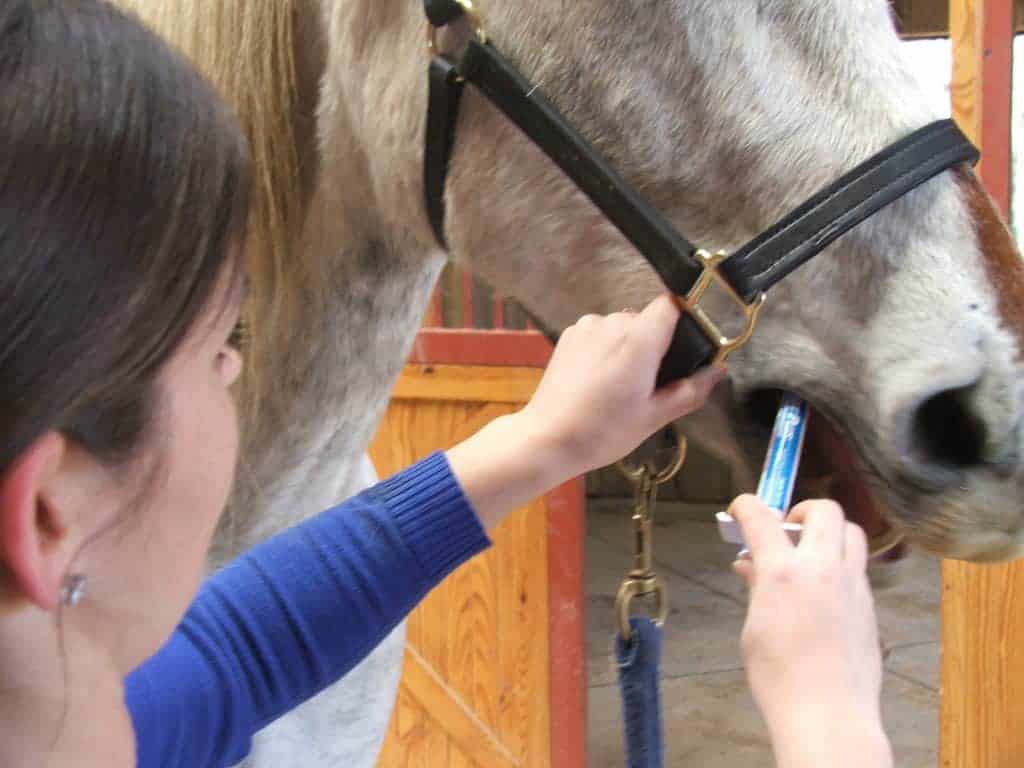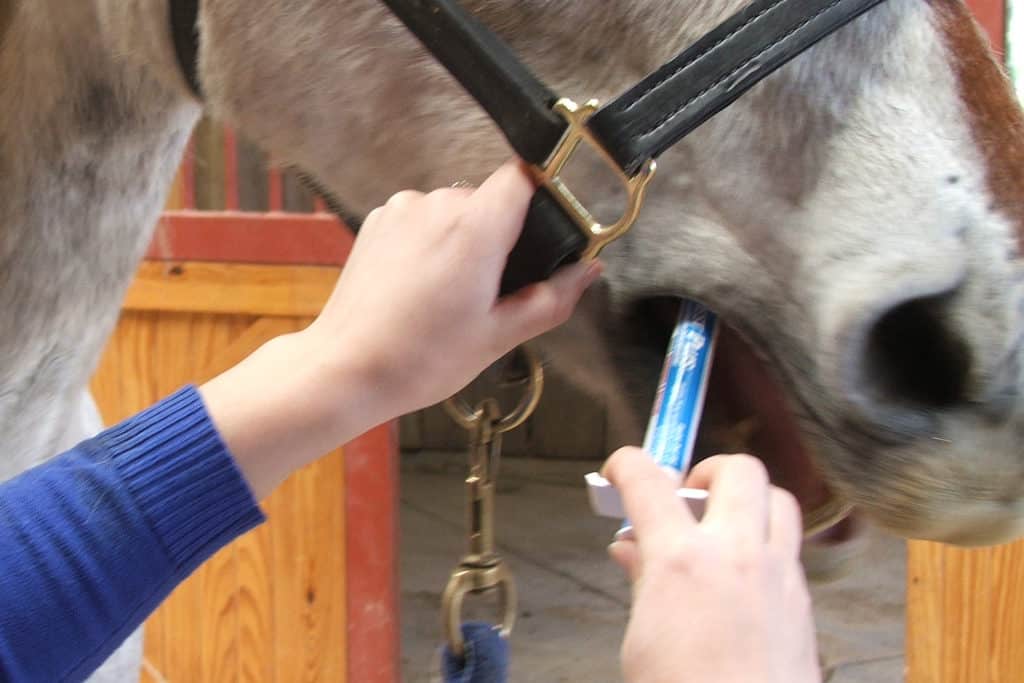Poll: Readers Chose Dewormers Wisely
TheHorse.com poll: “What did you deworm your horse with this spring?”
TheHorse.com poll: “What did you deworm your horse with this spring?”
TheHorse.com poll: “What drives your deworming product selection decision?”
Poll: What would make you stop using a rotational deworming program?”

Intensive use of anthelmintics has fueled parasite resistance to these drugs; here’s how to combat resistance.

Learn how weather, horse age, stocking density, and practices such as dragging and rotating pastures can affect your horse’s worm burden. Dr. Lori Bidwell also gives management tips for minimizing worm populations in your horses.

What internal parasites can affect horses, and how much damage can they cause? How do we fight them? Dr. Lori Bidwell explains in this video.
Pfizer Animal Health launched a new website in relation to their Individualized Deworming (ID) program. Located at IDMyHorse.com, the site offers horse owners and veterinarians a comprehensive deworming resource with guidelines, deworming reminder

The starry sky pattern is an unusual and dramatic ultrasonographic appearance of the equine liver.
High doses of radiation can lead to radiation sickness in humans, but what types of effects might they have on horses? In the wake of the fourth explosion at the Fukushima nuclear power plant following the March 11 earthquake and tsunami, concerns
Veterinarians from the University of California, Davis’, William R. Pritchard Veterinary Medical Teaching Hospital are helping clients protect their horses from influenza, tetanus, dental problems, and other health risks by providing owners with a
Foal owners need to be especially mindful of Parascaris equorum, commonly known as ascarids, the most dangerous worms found in these youngsters, according to D. Craig Barnett, DVM, senior equine technical services veterinarian for I
The University of Pennsylvania School of Veterinary Medicine’s New Bolton Center has announced the schedule for the First Tuesday Lecture Series through September 2011. The large animal campus of Penn’s School of Veterinary Medicine, New Bolton
A recent study by University of Kentucky researcher Mary Rossano, MS, PhD, assistant professor in Animal and Food Sciences, suggests that two commonly-used dewormers (fenbendazole and moxidectin) might no longer be as effective against small strongyles as once thought.
According to a research group based in Australia, if you feed your horse spores of the fungus Duddingtonia flagrans, the spores pass harmlessly through the digestive tract and are deposited in the feces along with eggs shed by adult intestinal parasites.

Discussion of the changing recommendations for horse deworming strategies (focusing on strongyles) and how you can help prevent resistance to dewormers.
How do you battle parasites in your horses despite increasing resistance to common deworming medications?
Stay on top of the most recent Horse Health news with
"*" indicates required fields